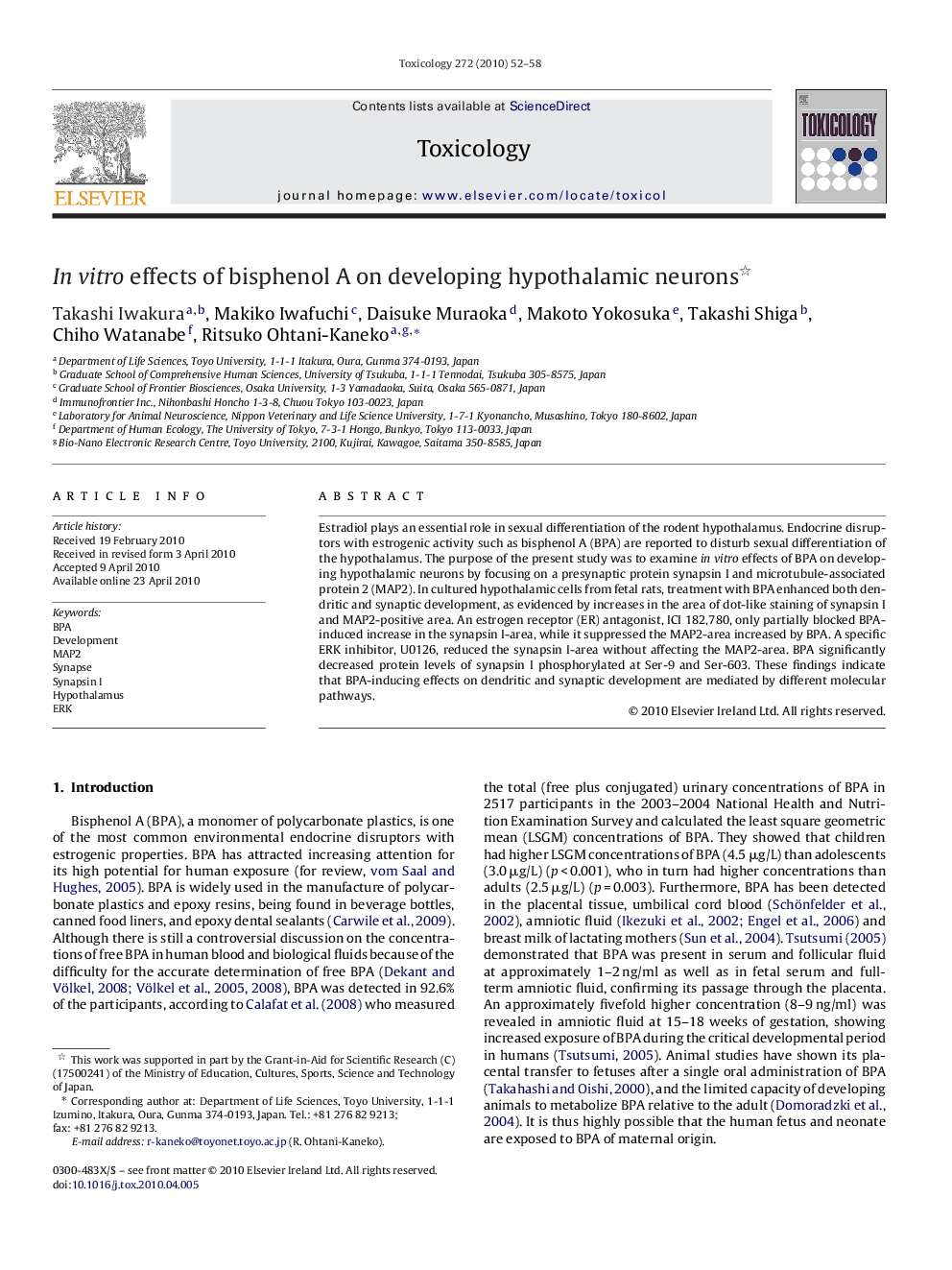| Article ID | Journal | Published Year | Pages | File Type |
|---|---|---|---|---|
| 2596448 | Toxicology | 2010 | 7 Pages |
Estradiol plays an essential role in sexual differentiation of the rodent hypothalamus. Endocrine disruptors with estrogenic activity such as bisphenol A (BPA) are reported to disturb sexual differentiation of the hypothalamus. The purpose of the present study was to examine in vitro effects of BPA on developing hypothalamic neurons by focusing on a presynaptic protein synapsin I and microtubule-associated protein 2 (MAP2). In cultured hypothalamic cells from fetal rats, treatment with BPA enhanced both dendritic and synaptic development, as evidenced by increases in the area of dot-like staining of synapsin I and MAP2-positive area. An estrogen receptor (ER) antagonist, ICI 182,780, only partially blocked BPA-induced increase in the synapsin I-area, while it suppressed the MAP2-area increased by BPA. A specific ERK inhibitor, U0126, reduced the synapsin I-area without affecting the MAP2-area. BPA significantly decreased protein levels of synapsin I phosphorylated at Ser-9 and Ser-603. These findings indicate that BPA-inducing effects on dendritic and synaptic development are mediated by different molecular pathways.
